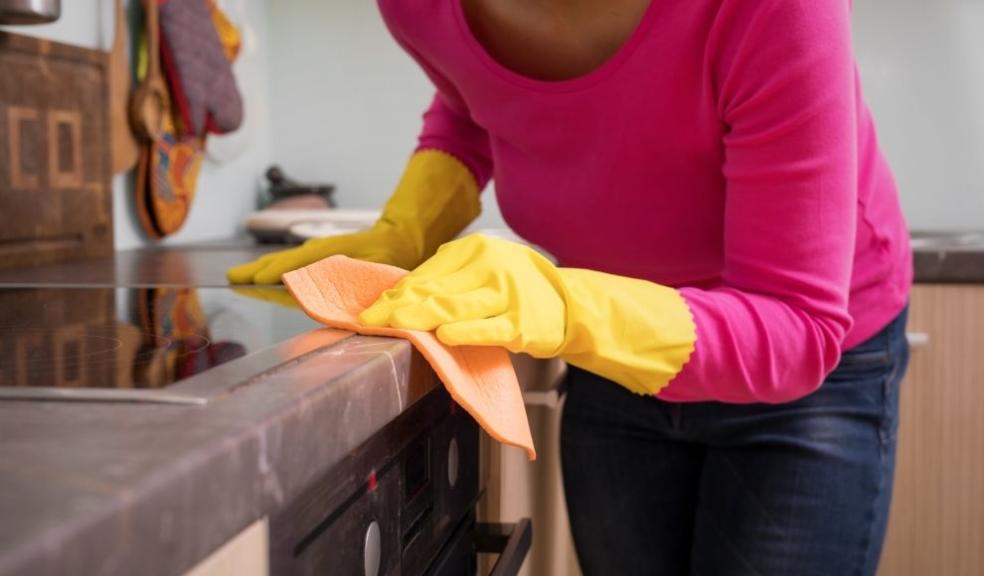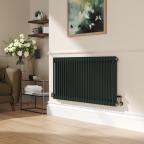
I’m a cleaning expert and here’s how to get your student tenancy deposit back
Over summer, University students will be preparing to move out of their university accommodation, and either back home or into a new home. For those who want their deposit back, ensuring that your living space is in pristine condition is essential for securing its return.
With a +136% increase in searches for ‘how to get deposit back from landlord’ understanding rights and responsibilities both when leaving one residence and entering into a new contractual agreement, is crucial.
This year, the National Student Accommodation Survey found that the average rental deposit was £263 and 17% of students had trouble getting their student house deposit back. To help students get their deposits back Mystudenthalls.com has teamed up with Molly Woodward-Moor at Stone Superstore to provide their top cleaning tips alongside providing advice for the end of your tenancy.
Abrasive products could cause damage
Molly explains “Although a deep clean is necessary, you need to be aware of causing any damage by using abrasive cleaners, as this will affect any deposit being returned if the property is not as it was when you moved in.
- Avoid bleach or acidic cleaners on natural stone tiles like limestone, marble, travertine, or terracotta. These materials are porous and can be easily damaged.
- Never use harsh chemicals or acids such as bleach or lemon when cleaning tiles, as this can remove the sealant and cause damage to your tiles and grout.
- Avoid using abrasive materials such as scouring sponges or stiff bristle brushes, these can scratch tiles and other surfaces and ruin their overall finish. Even the most durable of tile materials, such as ceramic and porcelain, should be treated with mild detergent and a microfiber cloth.”
How to clean mould out of tiles and grout
Mould may have formed throughout your tenancy, so it’s important to try to clear this before the inspection. When it comes to kitchens and bathroom tiles, Molly highlights how “For most tile materials, a pH-neutral alkaline cleaner is ideal. Always conduct a patch test on an inconspicuous area to ensure the cleaner is safe.
- I would recommend using a solution of warm water and washing-up liquid is a reliable DIY alternative. Dilute it well and rinse thoroughly with warm water and a microfiber cloth.
- Grout is porous and can absorb dirt quicker than tiles, making them look dirtier than they are - particularly if you have light or white grout. Similarly to tiles, bleach and cleaners containing ammonia should be avoided at all costs as they are corrosive, meaning they could weaken the grout, reducing its durability and leading to cracks.
- Whilst grout is notorious for a build-up of mould and mildew, a couple of cupboard essentials will do the trick. You can make your own grout cleaner with two parts baking soda and one part vinegar, if you haven't already got these to hand, you can get them both for as little as £2. For the best results, use a soft bristle toothbrush to work in whilst the mixture is still 'bubbly' and rinse with clean water.”
Dan Roberts, Director of Mystudenthalls.com emphasises the importance of cleaning before moving out “Make sure everything is in condition that it was when you moved in. If you’re having a moving-out party, do this a week before so that there’s time to clean up afterwards. Don’t forget the skirting boards, under beds, windows, oven and fridge and defrost the freezer.”
Dan also provides simple tips you can follow at the end of the tenancy to ensure deposits are returned in full:
When you move out
- Replace anything you lose or break if it’s not too expensive. Buying another one yourself is likely cheaper than the landlord replacing it when you move out. Make sure you hang on to receipts and other documents.
- Agree on dates with your housemates for moving out so that you can all do your fair share of tidying and cleaning. Ideally, everyone should be at the final inspection of the property.
- Invite your landlord around about a week before the final inspection so you can find out if there’s anything that they are unhappy about, and you have time to discuss it.
- Get rid of rubbish. If it wasn’t in the property when you arrived, you need to get rid of it – leftovers in the fridge, socks in the back of drawers and even the contents of the vacuum cleaner! Some landlords will charge you for things that have been left behind.
- Take photos of the property once everything is clean and tidy. You can also take a picture of the final meter readings for utilities.
- Agree on the final inventory with your landlord and keep a copy.
- Lock up and return all keys - to avoid the cost of changing locks. Someone is bound to forget, so make sure you remind everyone (nag if necessary – it’s your deposit that’s at stake). If everyone is leaving at separate times, appoint a bowl near the door to collect each key.
- Handling disputes - If you’re in dispute over the deposit, the TDP company can mediate. Both you and your landlord will provide evidence, and the TDP operator’s decision is final. If your landlord didn’t use a TDP scheme, you may be due compensation, and you can take your case to your local county court.
Dan adds: “By following these tips, students can ensure their university accommodation is left spotless, increasing the likelihood of getting their deposit back. “However, my advice to those going into a new let is to carry out regular, manageable cleaning routines to save time and effort, making the end-of-year move-out less stressful.”
For more information on student accommodation and how to get your deposit back visit: https://www.mystudenthalls.com/news/getting-tenancy-deposit-back/









